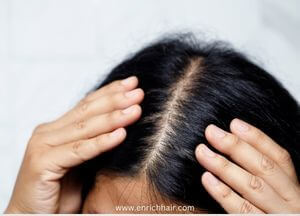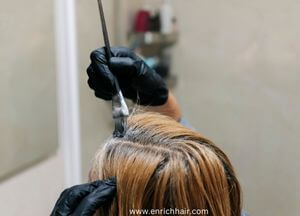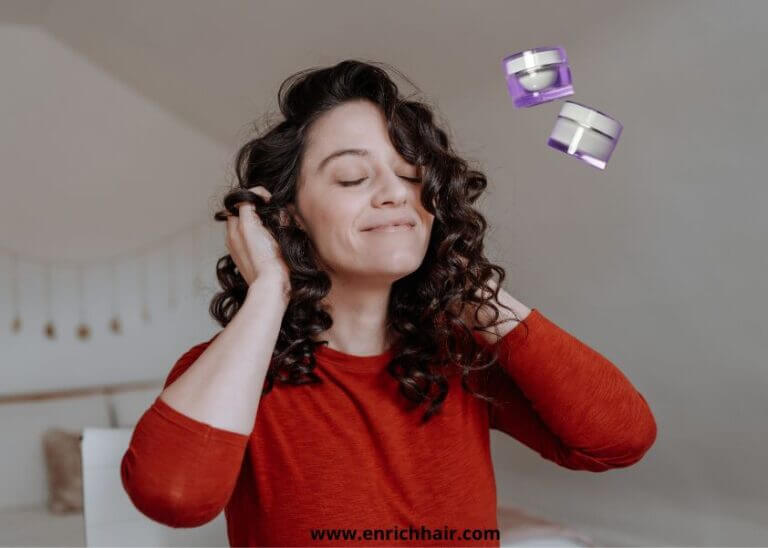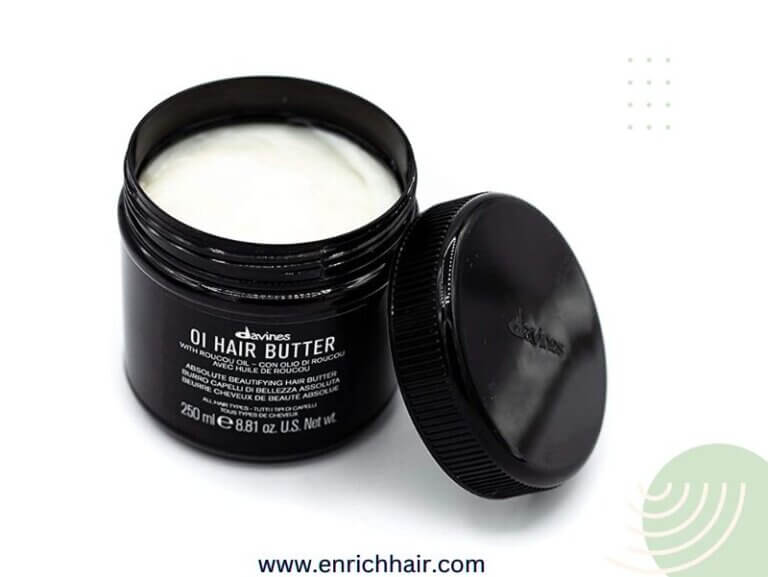Shampoos With DMDM Hydantoin: Overview
Table of Contents
Shampoos with DMDM hydantoin has been a topic of concern for many consumers. DMDM hydantoin is a preservative commonly found in personal care products, including shampoos, but it has been linked to potential health risks. In this article, we will explore the effects of DMDM hydantoin on the human body and the concerns surrounding its use in shampoos. We will also discuss alternative preservatives that are available for use in personal care products. Whether you’re a frequent shampoo user or simply looking to make more informed choices about the products you use, this article will provide valuable information.”
Purpose of DMDM Hydantoin In Shampoos
The purpose of DMDM Hydantoin in shampoos is to act as a preservative. It helps to prevent the growth of bacteria, mold, and yeast in the shampoo, which can cause it to spoil or become unsafe for use. This ensures that the shampoo remains fresh and effective for an extended period of time, even after it has been opened and used. Additionally, DMDM Hydantoin can also provide some conditioning properties that can help to make hair feel softer and more manageable.
How DMDM Hydantoin Works?
DMDM Hydantoin works by releasing formaldehyde, a well-known preservative, in small amounts. When added to a personal care product, DMDM Hydantoin breaks down slowly over time, releasing formaldehyde which acts as a preservative to inhibit the growth of bacteria, mold, and yeast in the product. Formaldehyde is effective at killing microorganisms and preventing them from growing and spoiling the product.
It is considered safe for use in personal care products at concentrations of up to 0.2%. However, the amount of formaldehyde released can vary depending on the pH and temperature of the product, and the concentration of DMDM Hydantoin used.
As a conditioning agent, DMDM Hydantoin can help to make hair feel softer and more manageable by coating the hair shaft and providing a protective barrier. This can help to reduce damage from styling and environmental factors and can leave hair looking and feeling healthier.
The Pros of DMDM Hydantoin in Shampoos
Here are some Pros of shampoos With DMDM Hydantoin.
-
Preservation Of The Product:
DMDM Hydantoin is an effective preservative that helps to prevent the growth of bacteria, mold, and yeast in the shampoo, ensuring that the shampoo remains fresh and effective for an extended period of time, even after it has been opened and used. This preservation property of DMDM Hydantoin is particularly important in shampoos, as these are products that are often used in damp environments, such as bathrooms, which can create an ideal environment for the growth of bacteria, mold, and yeast. DMDM Hydantoin can help to prevent the growth of these microorganisms, which can otherwise cause the shampoo to spoil and become ineffective.
-
Conditioning Properties:
DMDM Hydantoin can act as a conditioning agent that can help to make hair feel softer and more manageable by coating the hair shaft and providing a protective barrier.
DMDM Hydantoin can help to coat the hair shaft and provide a protective barrier which can help to make hair feel softer and more manageable. This is because DMDM Hydantoin acts as a humectant, which means it helps to retain moisture and keep hair hydrated.
Additionally, DMDM Hydantoin can also help to smooth the cuticles of the hair, which can make the hair appear shinier and more manageable. This can be particularly beneficial for people with dry, damaged, or frizzy hair.
It’s important to note that DMDM Hydantoin’s conditioning properties are not as strong as those of other conditioning agents, such as silicones or natural oils. Additionally, the long-term use of DMDM Hydantoin can have negative effects on hair, such as dryness, brittleness and also, and it can strip the hair of natural oils and moisture.
As with any hair product, it’s important to use DMDM Hydantoin in shampoos in moderation and to consider the potential negative effects of long-term use. Additionally, it’s important to pay attention to the overall composition of the shampoo, which should provide good conditioning, hydration, and nourishment for hair.
-
Cost-effective:
DMDM Hydantoin is a relatively inexpensive preservative option and is widely available, which can make it an appealing choice for manufacturers looking to keep costs down.
The Cons Of DMDM Hydantoin In Shampoos
The Cons of shampoos With DMDM Hydantoin include:
-
Health risks associated with formaldehyde release:

DMDM Hydantoin releases formaldehyde, a known carcinogen, in small amounts. Prolonged exposure to formaldehyde can cause skin irritation, redness, and even allergic reactions, as well as increase the risk of cancer.
-
Effects on hair and scalp:

This is because DMDM Hydantoin can strip the hair and scalp of natural oils and moisture. The scalp is the base of healthy hair growth. When the scalp is dry and itchy, it can lead to dandruff, hair fall, and other scalp issues. Additionally, as DMDM Hydantoin can dry out the hair, it can lead to breakage and damage, making the hair brittle and hard to manage.
Long-Term Effects
The long-term effects of using products that contain DMDM Hydantoin are not well studied. However, some studies have suggested that prolonged exposure to formaldehyde, which is released by DMDM Hydantoin, may have negative effects on human health.
Here are some possible long-term effects of shampoos with DMDM Hydantoin.
-
Skin irritation and allergic reactions

The long-term effects of using products that contain DMDM Hydantoin are not well studied. However, some studies have suggested that prolonged exposure to formaldehyde, which is released by DMDM Hydantoin, may have negative effects on human health.
-
-
Great Damage to hair:
-
DMDM hydantoin, a formaldehyde-releasing preservative, can cause hair to become dry, brittle, and prone to breakage over time.

-
Fading of hair color:

DMDM hydantoin can cause fading of hair color, particularly in individuals with color-treated hair. This is because the preservative can break down the pigments in hair dye, causing the color to fade or become less vibrant. Additionally, DMDM hydantoin can cause dryness and brittleness in hair, which can lead to color fading as well.
-
Long-term hair loss:

Prolonged use of shampoos containing DMDM hydantoin can lead to hair loss, thinning, and general hair damage.DMDM hydantoin can cause scalp irritation, which can lead to hair loss as well. It may also cause an allergic reaction that can lead to hair loss.
Natural And Organic Alternatives
There are many natural and organic alternatives to DMDM Hydantoin that can be used in shampoos and other personal care products. Some of the most popular natural and organic alternatives include:
- Grapefruit seed extract (GSE): GSE is a natural preservative that is derived from the seeds and pulp of grapefruits. It is effective at preventing the growth of bacteria, mold, and yeast, and is considered safe for use in personal care products.
- Rosemary extract: Rosemary extract is a natural preservative that is derived from the leaves of the rosemary plant. It is effective at preventing the growth of bacteria, mold, and yeast, and is considered safe for use in personal care products.
- Vitamin E: Vitamin E is a natural antioxidant that can help to protect the hair and scalp from damage caused by environmental factors. It is also effective at preventing the growth of bacteria and mold and is considered safe for use in personal care products.
- Neem Oil: Neem oil is extracted from the neem tree and is a natural fungicide and bactericide. It is known to be effective against a wide range of microorganisms and can help to protect the product from spoilage.
- Tea Tree Oil: Tea tree oil is extracted from the leaves of the tea tree and is known to be an effective antifungal and antimicrobial agent. It can help to protect the product from spoilage and can also provide benefits to the hair and scalp.
- Essential oils: Many essential oils have natural antimicrobial properties, such as lavender, peppermint, and eucalyptus. These oils can be used in small amounts as a natural preservative.
It’s important to note that natural and organic alternatives may not be as effective as synthetic preservatives like DMDM Hydantoin, and some may require higher concentrations to be effective. Additionally, some natural preservatives have a shorter shelf life than synthetic preservatives. It’s always important to check with your manufacturers or experts to make sure that the preservatives you choose are appropriate for your specific product and usage.
Comparison To DMDM Hydantoin
When compared to DMDM Hydantoin, alternative preservatives have several key differences:
- Natural vs Synthetic: DMDM Hydantoin is a synthetic preservative, while alternative preservatives such as grapefruit seed extract, rosemary extract, and vitamin E are natural.
- Safety profile: DMDM Hydantoin releases formaldehyde, a known carcinogen, which can cause skin irritation and allergic reactions in some people. Alternative preservatives like benzyl alcohol, potassium sorbate, and Dehydroacetic acid are generally considered safe for use in personal care products and have a lower risk of causing skin irritation or allergic reactions.
- Effectiveness: DMDM Hydantoin is an effective preservative and conditioning agent, but alternative preservatives may vary in their effectiveness. Some natural preservatives can be less effective than synthetic ones, but they may provide other benefits, such as moisturizing or nourishing properties.
- Environmental impact: Some natural preservatives are more environmentally friendly than synthetic ones, as they are derived from natural sources and biodegrade more quickly.
It’s important to note that the best preservatives for your product will depend on your specific needs and the type of product you are making. It’s always important to check with your manufacturers or experts to make sure that the preservatives you choose are appropriate for your specific product and usage.
List Of Shampoos Without DMDM Hydantoin
Here is a list of Shampoos Without DMDM Hydantoin
1.EVOLVh – Natural UltraShine Moisture Shampoo

Alba Botanica More Moisture Coconut Milk Shampoo is specially made for dry hair. It contains coconut milk to help lock in moisture, keeping your hair hydrated and healthy.
2. Botanic Hearth Tea Tree Shampoo

This tea tree dandruff shampoo helps reduce flakes, itching, and irritation. It’s a good choice for people with a dry or sensitive scalp.
3. PURA D’OR A Thin2Thick Set Shampoo

Our Apple Cider Vinegar Shampoo and Conditioner has vitamins and nutrients that help fix damaged hair and bring back its healthy, shiny, and full look.
4. HIBAR – Moisturize Shampoo Bar

HiBAR’s Moisturize Shampoo Bar is made for dry and frizzy hair. It helps your hair hold in moisture, feel smoother, and stay healthy without removing natural oils. It leaves your hair soft, shiny, and easier to manage.
5. Alba Botanica More Moisture Shampoo

Alba Botanica More Moisture Coconut Milk Shampoo is specially made for dry hair. It contains coconut milk to help lock in moisture, keeping your hair hydrated and healthy.
Conclusion: Shampoos With DMDM Hydantoin:
In conclusion, DMDM Hydantoin is a common preservative used in shampoos and other personal care products to prevent the growth of bacteria, mold, and yeast, and to provide some conditioning properties. However, its use has been under scrutiny due to the release of formaldehyde, a known carcinogen. While DMDM Hydantoin can be effective in preserving the product, it can also have negative effects on the hair, scalp, and skin when used over a long period of time. Consumers should be aware of the presence of DMDM Hydantoin in their shampoo and should weigh the benefits against the risks. There are many natural and organic alternatives available that are free of harsh chemicals and safe for use on all hair types.
FAQs:
Is DMDM hydantoin safe for use in shampoos?
Yes, DMDM hydantoin is considered safe for use in shampoos by regulatory agencies, including the US Food and Drug Administration (FDA) and the European Commission’s Scientific Committee on Consumer Safety (SCCS).
Does DMDM hydantoin cause allergic reactions?
Some individuals may be sensitive or allergic to DMDM hydantoin, which can cause irritation, redness, or itching of the scalp. If you experience any adverse reactions, you should discontinue use and consult a healthcare provider.
Are there any shampoos that do not contain DMDM hydantoin?
Yes,If you are concerned about using products with this ingredient, you can look for shampoos that are labeled as “preservative-free” or that use alternative preservatives such as natural essential oils or plant extracts.
Is DMDM hydantoin derived from natural sources?
No, DMDM hydantoin is a synthetic ingredient that is not derived from natural sources.







